Data sharing is already changing the face of customer care by providing organisations with the necessary information to identify vulnerable customers. How will this comprehensive knowledge base continue to expand, and what answers are emerging on how to support vulnerable people moving forward?
These were the topics discussed at The Vulnerability Jigsaw event, organised by The Vulnerability Registration Service (VRS), and attended by more than 250 people from credit organisations, collections companies, debt charities and many others that manage customers in vulnerable circumstances.
This jigsaw event brought together six different organisations, each working with the support of vulnerable people in mind, and each providing a piece of the vulnerability puzzle. The aim was to provide a comprehensive scope of how vulnerable people are currently being identified thanks to data sharing, and what the future of their support might look like.
You can watch ‘The Vulnerability Jigsaw’ webinar in full and on-demand.
Here’s what each had to say:
Vulnerability Registration Service – presented by Helen Lord, CEO of VRS
For the last five years, the Vulnerability Registration Service – a not-for-profit’ organisation that gives people a single place to register their vulnerable status – has been working alongside organisations in various sectors to create a comprehensive database of vulnerable consumers in the UK. This data aids in the identification of vulnerable customers, which is the first and most important step in enacting change. But identifying vulnerability isn’t the whole story. With the VRS database growing, the VRS is turning its attention to some other important questions.
“The next important step is resolving how to integrate this existing database into multiple systems for organisations to access,” said Helen Lord, CEO of VRS. “Then of course the question is: how do you implement effective strategies to support each case of vulnerability? There’s never going to be a single answer to helping vulnerable customers, but events like this help bring together lots of people and ideas all working towards the same goal, and this helps those numerous solutions come to light.”
EstateSearch – presented by Ben Furlong, Associate Director
Estatesearch is a legal technology company developing solutions to support better outcomes for vulnerable clients. For them, the importance of sharing data is extremely evident when it comes to preventing fraud and financial abuse.
Ben Furlong said: “The legal sector plays a critical role in supporting people at vulnerable junctures, whether it be a result of bereavement, illness, or loss of mental capacity.”
Working with other like-minded professionals, Estatesearch aims to understand the key challenges faced by organisations supporting vulnerable customers, and they hope to bring data and technology together to develop robust solutions. They’re working with over 1000 legal service providers nationally, and currently share data with the VRS.
One of the main fraudulent issues they face (two-thirds of cases) is deceased estates – identity thieves deliberately targeting deceased individuals in the UK. Because mortality databases can take up to 12 months to update, a lot of fraudsters were acting within this time, but now they are able to share information about a date of death electronically with VRS, giving thieves less time to act.
This is just one example of how they are already delivering more streamlined and efficient processes thanks to data sharing.
England Illegal Money Lending Team – presented by Cath Wohlers, LIAISE Manager
The England Illegal Money Lending Team is a criminal enforcement team dedicated to prosecuting loan sharks and ultimately removing them from communities. Their victim support team work tirelessly to find new ways to prevent victim targeting, as well as providing post-victimisation care. While their enforcement teams are effective in removing the threats, Cath Wohlers, Liaise Manager, spoke to us about how they’re hoping to enhance their victim support approach. By looking into better education for communities and asking how credit unions can prevent individuals from seeking out loan sharks in the first place, they hope to enact more preventative measures in the near future.
“We believe in safety first, removal of the illegal lender (not the victim), no repercussions, and no requirements of the victim to report the crime,” said Cath Wohlers.
There are lots of variants in vulnerability, which is why the Illegal Money Lending Team is focused on a holistic approach to victim support. In terms of new approaches, training is now available online or face-to-face; they’re offering free access to specialist support around illegal lending, as well as online banking and how it’s used in illegal lending; their LiveChat is available as well as their existing hotline (which is evidenced to give people the comfort of anonymity); and they are also working alongside credit unions to find better support systems for vulnerable people.
The Illegal Money Lending Team currently data-share with VRS so that known victims can be registered as people vulnerable to coercion. “VRS is a brilliant system,” said Cath. “It’s long overdue, and I’d highly recommend signing up to anyone who hasn’t already.”
Winner of Global Young Banker of the Year Worldwide – Rosie Lyon
Rosie Lyon is the 2021 winner of the Global Young Banker of the Year award. She won this award thanks to her proposal to provide a fairer financial future for sufferers and survivors of domestic abuse.
At The Vulnerability Jigsaw event, Rosie spoke about her own experiences of being a vulnerable customer. In her early twenties she experienced domestic abuse within a relationship, during which time she co-bought a property with her partner. After their break-up in 2019 she was forced to leave the home, but despite no longer living within the property she was coerced by her partner to continue making mortgage and bill payments.
She finally sought advice in 2020 after realising she could no longer afford to keep up the payments. It was taking a toll on her mental wellbeing, in part due to the continuous contact she was having with her abusive ex-partner.
After informing her bank of her decision to stop making mortgage payments, however, their response was to call her daily to enquire about payment, ignoring the note on her account that stated the payment situation was due to a domestically abusive situation. Because of this, Rosie was therefore forced to retell her story every time the bank called her, thus forcing her to relive the trauma over and over again.
The lack of policies and basic knowledge of how to handle vulnerable customers shocked her. When she heard about the Young Banker of the Year Award, she realised she wanted to try to enact changes to the processes and policies surrounding domestic and financial abuse.
“My plan included raising awareness, implementing training, enhancing policies and procedures, and generating easier access to lending opportunities for those sufferers and survivors that have poor credit due to no fault of their own,” Rosie explained.
She won the competition, the first woman to do so, and since then has piloted her new policies across local institutions, including Allied Irish Bank, the bank she works for and various credit reference agencies. In just a short amount of time improvements have been made. At the bank where she works, they now accept GP letters as evidence of domestic abuse, and this is enough to open a bank account. She is now working with UK finance, the FCA and HM Treasury, to roll out improvements on a larger scale.
“I believe that if we were able to share information and data in regards to letters from GPs, solicitors, etc., people wouldn’t have to be re-traumatised retelling their stories.”
Welsh Water – presented by Kim Hopkins, Specialist Support Customer Manager
Specialist Support Customer Manager, Kim Hopkins, came to The Vulnerability Jigsaw to talk about how the not-for-profit water company, Welsh Water, is using data sharing to provide better-informed care to their vulnerable customers. Together, Welsh Water supports over 130k customers to help reduce their water bills, and they now have over 110k customers signed up to their priority service register.
“In 2018, the board approved our customer service strategy for customers in vulnerable circumstances,” Kim Hopkins explained. “In developing our Vulnerable Customer strategy, we looked across the water and energy sectors and learned from the experience of our many partners to identify best practice, as well as carrying out research with vulnerable customers and the bodies that represent them.”
Their customer care approach focuses on several key areas. Data – working with the Welsh government to agree upon a data share plan. Priority services – developing a specialist team and working alongside others to develop and implement new strategies. Financial vulnerability –
refining new tariffs to expand support and develop areas of the business (such as the website) to enhance accessibility. Partners – establishing a small community-based team and engaging with local partners, organisations and specialists to access hard-to-reach communities. And finally, training – developing specialist training and holding regular knowledge sessions that educate on topics of vulnerability.
Welsh Water already shares data with DWP (Department for Work and Pensions). This data share enables them to identify customers who may be eligible for support. Their early intervention into these sorts of cases enables them to identify customers who claim the relevant benefits to qualify for their social tariffs. As well as this, they plan to benefit from data sharing opportunities with Western Power Distribution and United Utilities, as well as organisations such as Welsh hospitals and health boards, local authorities, housing associations, and the VRS.
Ascendant Solutions – presented by Richard Hanby, IT Director
Ascendant Solutions is a data management company working to provide bespoke software solutions to local authorities. The business uses VRS data to integrate to other solutions with local authorities and other various sectors, and by doing so they aim to effectively identify vulnerability, affordability and collectability.
“Having come from the debt collection world, it’s wonderful to see such positive advances in data sharing,” said Richard Hanby.
Their integrated solution is ‘Pathway’, which aims to place customers on the right journey using a selection of data solution providers and sharers, including Consumer Credit Bureau Data, VRS, Elanev Vulnerability Scoring, WhenFresh (property transnational), and other data sources.
Ascendant Solutions collects and organises data from across these sources, and by combining different types of information they have produced a comprehensive knowledge base. With this collected data, Ascendant Solutions is looking at several pathways for customer support, including signposting, council house reduction schemes/ benefits, home payment plans, DHP, local welfare provision, housing, visits, and social care.
Having already tested this new approach, they have confirmed that not only does it work, but it has trackable success in response rates, payment rates etc.
A huge thank you to Ben Furlong, Cath Wohlers, Rosie Lyon, Kim Hopkins, Richard Hanby and Helen Lord for taking part.
Helen Lord, CEO of the Vulnerability Registration Service, said: “VRS is planning another event on 14 June 2022 that will focus on the best working practices that are targeted towards helping vulnerable customers.”
To register for the next event, visit: https://www.eventbrite.co.uk/e/the-vulnerability-jigsaws-next-piece-tickets-290293093457
The Vulnerability Jigsaw event was organised by the Vulnerability Registration Service, a not-for-profit organisation that gives people a single place to register their vulnerable status. It includes those in financial distress, with mental health problems, at risk of financial abuse, victims of fraud and their representatives, such as those with power of attorney. The service is free for them. For organisations, once they have registered as members, they can start checking current and prospective customers against the database to identify where vulnerability exists. This allows them to put in place the appropriate action and ensure the fair treatment of those vulnerable customers – helping to reduce debt, financial problems and harm. The cost for them is small, while the benefits are wide ranging.

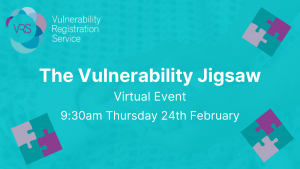




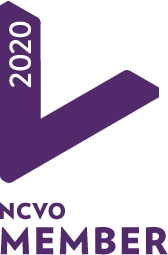
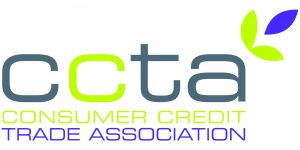
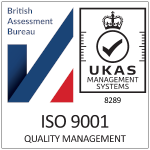

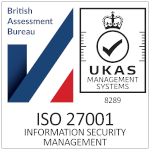
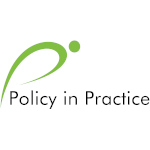
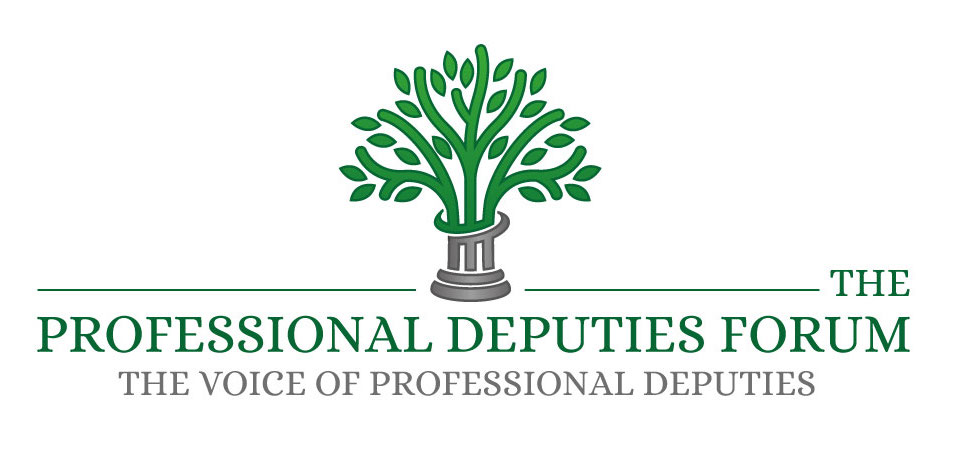

Post a comment